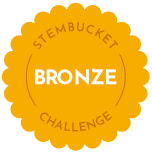Fish Intestines Compost Block
ACES Challenge Entry

Gold: Learning outcomes award

Silver: Malaysia country award

Silver: Frugal aspects award

Bronze: Overall winner award
Participant:
Megah Holdings
School:
Universiti Malaysia Sarawak
Country:
Malaysia
Summary
The aim is to provide a financially viable way to compost fish waste and other organic wastes in the coastal fishing community while including elements of both playful learning and frugal education approaches. We learned that fishing is a significant source of revenue for the population in the quaint village of Pasir Pandak, and dried fish (ikan salai) is one of their primary products for sale. Large amounts of fish waste, including intestines, which are frequently tossed into the compound, add to the odour, and have an impact on hygiene. Crocodiles and monitor lizards are the usual scavengers attracted by these inappropriate fish wastes.
The main outcome is the use of fish waste as a composting material to stimulate economic growth. The problem aligns with SDG 1.5, which aims to empower the villages to take problems into their own hands by composting trash for their vegetable gardens and fruit orchards. Further income from this can be generated to end poverty. The use of compost as a crop fertiliser might eliminate the need for artificial fertilisers, resulting in increased crop yields that would ensure the farmers’ village’s food supply and consumption is sustainable (SDG Target 12.5).
Learning and Competency Outcomes
Through this activity, students will successfully show how to collaborate with others from different fields to discover a practical solution to an issue that has been recognised in the nearby coastal community. To support the objectives of producing new and long-lasting results, this activity promotes a rich interaction across academic disciplines. The assignment sharpens the learners’ creativity as they come up with concepts for creating a prototype out of materials that are easily accessible. The primary result of the activity is the use of the waste produced from the fish as a source for compost, which can promote economic growth by turning trash into a useful good.
Playful Aspects
This method is crucial for creating fun, low-tech composting tools to let kids work with adults and learn how to compost their fish waste while having fun. Fish guts, earth, organic waste, and water were combined to create the compost within a plastic bottle with drainage holes. These items will gradually be transformed into compost that can be used. Compost will be cut into blocks of a specific size to make it more convenient to stack, more space-efficient, and compact. Additionally, the block-sized compost may be stored for a longer shelf life.
Frugal Aspects
Smart, easy-to-implement solutions are what frugal innovations are all about. By putting the theory into practice, it is proposed to manufacture compost using widely available materials and ingredients such plastic bottles, fish waste, organic waste, and water. Composting at home is possible if you use readily available materials. Our approach is to set up a proper composting area utilising inexpensive products that are readily available in the village, as the major objective is to promote a realistic composting concept for the inhabitants of Pasir Pandak. Fish waste can therefore be utilised to produce new compost every few weeks, which the farmers can use as needed.
